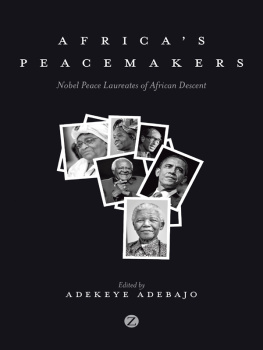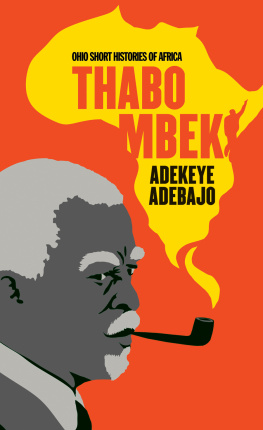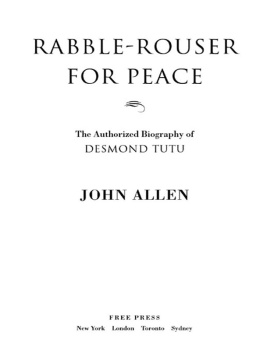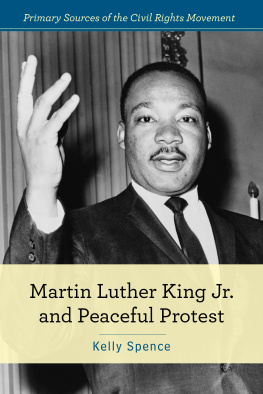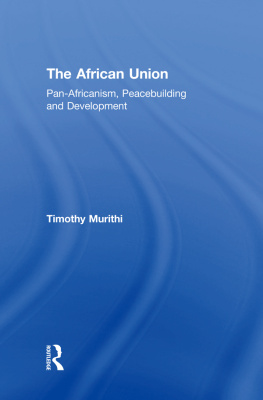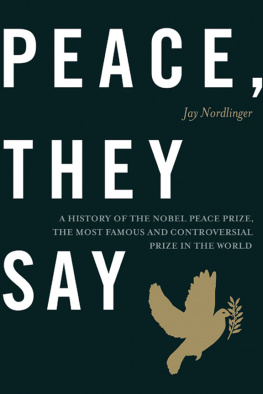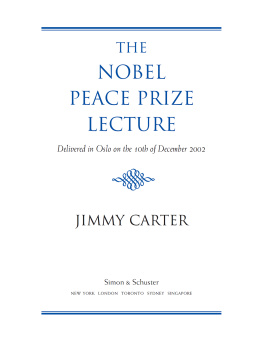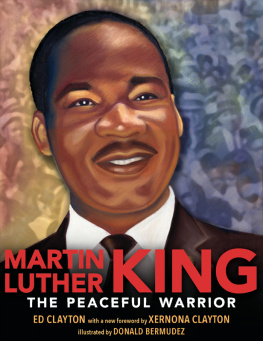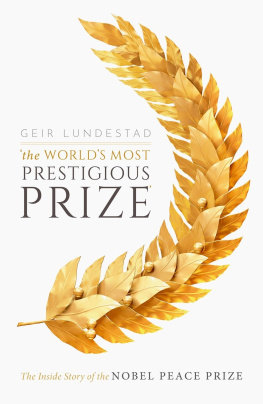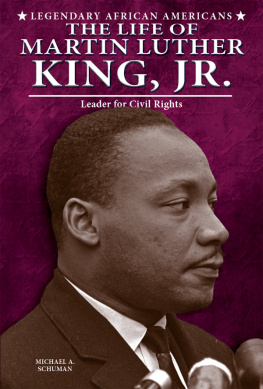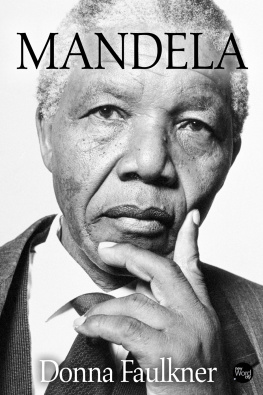About the Editor
Adekeye Adebajo has been executive director of the Centre for Conflict Resolution in Cape Town, South Africa, since 2003. He obtained his doctorate from Oxford University, where he studied as a Rhodes Scholar. He has served on United Nations missions in South Africa, Western Sahara and Iraq. Dr Adebajo is the author of four books: Building Peace in West Africa; Liberias Civil War; The Curse of Berlin: Africa After the Cold War; and UN Peacekeeping in Africa: From the Suez Crisis to the Sudan Conflicts. He is editor or co-editor of seven books, on managing global conflicts, the United Nations, the European Union, West African security, and South Africas and Nigerias foreign policies in Africa.
Africas Peacemakers: Nobel Peace Laureates of African Descent was first published in 2014 by Zed Books Ltd, 7 Cynthia Street, London N1 9JF, UK and Room 400, 175 Fifth Avenue, New York, NY 10010, USA
This ebook edition was first published in 2014.
www.zedbooks.co.uk
Editorial Copyright Centre for Conflict Resolution 2014
Copyright in this collection Zed Books 2014
The right of Adekeye Adebajo to be identified as the editor of this work has been asserted by him in accordance with the Copyright, Designs and Patents Act, 1988
Typeset in Monotype Bulmer by illuminati, Grosmont
Index by John Barker
Cover design by www.roguefour.co.uk
Cover images (clockwise from bottom): Nelson Mandela - Oistein Thomassen / Alamy, Archbishop Desmond Tutu - Nathan King / Alamy, Ellen Johnson Sirleaf - Aurora Photos / Alamy, Wangari Muta Maathai - Jeremy Sutton-Hibbert / Alamy, Anwar Sadat - Peter Jordan / Alamy, Barack Obama - dbimages / Alamy.
All rights reserved. No part of this publication may be reproduced, stored in a retrieval system or transmitted in any form or by any means, electronic, mechanical, photocopying or otherwise, without the prior permission of Zed Books Ltd.
A catalogue record for this book is available from the British Library
Library of Congress Cataloging in Publication Data available
ISBN 978 1 78032 945 1
ONE
OBAMAS NOBEL ANCESTORS: FROM BUNCHE TO BARACK AND BEYOND
ADEKEYE ADEBAJO
The political liberation of Africa was complete in May 1994 when Nelson Mandela became president of a democratic South Africa. In a speech to the US Congress five months later, Mandela quoted his fellow Nobel peace laureate Martin Luther King Jrs famous words from an old Negro spiritual, uttered during his 1963 speech commemorating the March on Washington DC: Free at last, free at last, thank God Almighty we are free at last! Two of the twentieth centurys greatest pan-African struggles the civil rights and anti-apartheid battles were thus inextricably linked. Both of these liberation struggles, in Africa and the United States, focused on combating racial injustice and social inequality. The black ghettos of the American civil rights struggle mirrored the black townships of the anti-apartheid struggle as the major cauldrons of these battles.
In 2013 the African Union (AU) commemorated fifty years since the birth of its predecessor, the Organisation of African Unity (OAU), which embodied the quest for pan-African unity. The AU has also designated the African diaspora a sixth subregion (along with Southern, Central, West, East and North Africa), thus recognising the continuing relevance of this historical relationship in which towering figures of the pan-African movement, like Americas W.E.B. DuBois, Trinidads The thirteen Nobel peace laureates examined in this volume are thus, in a real sense, prophets of Pax Africana.
This volume seeks to draw lessons for peacemaking, civil rights, socio-economic justice, environmental protection, nuclear disarmament and womens rights, based on the rich experiences of the thirteen Nobel peace laureates of African descent who won the prize between 1950 and 2011. These Nobel laureates come from diverse backgrounds, but have waged similar struggles for peace, justice and freedom. This collection of lucid, jargon-free essays, written by an interdisciplinary team of fourteen prominent African and African American scholars and practitioners, is the first book comprehensively to address this important topic.
African Americans like Nobel peace laureates Ralph Bunche (who won the prize in 1950) and Martin Luther King Jr (1964) played an important role in the pan-African struggle, with Bunche leading the creation of the United Nations Trusteeship Council by 1947 and King championing decolonisation efforts. Both attended Kwame Nkrumahs independence celebration in Accra in March 1957. South Africa was the last African country to gain political independence from colonial rule, in 1994, in this thirty-year struggle, and it is appropriate that four of its citizens have won the Nobel Peace Prize: Albert Luthuli (1960), Desmond Tutu (1984), Nelson Mandela (1993) and Frederik Willem de Klerk (1993). The ancient civilisation of Egypt has produced two Nobel peace laureates Anwar Sadat (1978) and Mohamed ElBaradei (2005) honoured for peacemaking and nuclear disarmament respectively.
Ghana, which produced one of the greatest prophets of Pax Africana in Kwame Nkrumah, has been honoured with the award of the Nobel Peace Prize to Kofi Annan (2001), the UN Secretary General between 1997 and 2006. Kenya, the site of one of Africas greatest indigenous anti-colonial struggles, the Mau Mau resistance to British rule of 19521960, has produced a Nobel peace laureate in Wangari Maathai (2004), who devoted her life to environmental campaigning. Liberia, one of Africas oldest republics, founded in 1847 by freed American slaves, has produced the two most recent African Nobel peace laureates: Ellen Johnson Sirleaf and Leymah Gbowee (both in 2011) for their role in the struggle for womens rights.
The first American president of African descent, Barack Obama (whose father was Kenyan), won the Nobel Peace Prize in 2009, and his career was inspired by Martin Luther King Jrs civil rights struggle. Obama was also the direct beneficiary of this struggle, waged by King as well as Ralph Bunche. As a young student in the United States, Obama first became politically active when he engaged in the anti-apartheid struggle that sought to impose sanctions on the racist albinocracy in South Africa. He started a second and final presidential term in January 2013 in which he was expected to show more engagement with his ancestral continent. Obama therefore visited South Africa, Tanzania and Senegal six months into his second term.
This book will thus examine the contributions of three prominent African Americans, four South African priests and politicians, three peacemakers from Egypt and Ghana, and three women activists from Kenya and Liberia.

